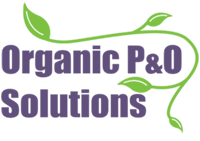So you’re booked onto a training session, how will you make sure you get the most out of it? We’ve answered five key questions that we encourage people to consider so they may make best use of their training investment. So, let’s get started:
Why are you attending?
Are you there because you have to be or because you want to be? This is more than simply mandatory versus voluntary attendance (although this will have an impact on its own). I mean, do you really want to be there and do you really have a clear purpose for what you will do with your new knowledge, skills or behaviours once you’ve received the training? If the answer to both questions is no, then perhaps this isn’t the right time for this training for you. Could you offer your place to someone who is in a better position to benefit? True, you will always get something from attending and it’s not always what you might have planned, but fundamentally, is this a good use of your time or will your investment be diluted because you won’t apply what you have learned?
Who are you listening to and how well are you doing it?
A shared learning experience is beneficial because you can learn so much from the other people in the room over and above what is available from the trainer. A good facilitator will make sure that happens as part of their delivery style. Yet so often I witness people miss out on so much because they do one or some of the following:
- they listen selectively to content and not different perspectives from the discussion
- they speak to the person next to them during group discussion time. This dilutes not only their own experience but that of the person they are speaking to
- they don’t take any notes and so have nothing to reflect on later
Aside from manners, any of the above assume what’s in your head is more important at that time than what’s being said in the room. Equally, you may have something to add to the discussion that could benefit everyone else. So make a commitment to both you and your fellow delegates to focus on the time you have, for the topic you have and everyone will benefit.
If you have something burning that you feel you must say, write it down and asterisk or highlight it in some way. If at the end of the discussion your point hasn’t been addressed, you can introduce it in the group or discuss it informally in a break. This affords the person you would have said it to, to do the same, and not be distracted by your current thoughts at that time.
Are you clear about why you’re there?
In our experience, and if we’ve worked together already, you’ll probably have heard me say this a lot. Learning happens in layers. We learn incrementally from wherever we are in relation to the topic and we learn only what we are ready for. So do you know what your current knowledge/skill level is so you can make sure you focus on what you can apply after you’ve attending your training session? The more specific you are about your learning objectives, the more likely you are to take in what you need from the session. This works on both a conscious and subconscious level with both direct and indirect learning outcomes. Think about a blue car then go for a drive and you’ll spot lots of blue cars on the road. There aren’t any more than usual, you’re just tuned into to spotting them. The same applies to your learning. It’s called RAS and if you’re interested to know more about how that works, you can find out more about it here.
Have you created the right environment for your learning?
When I’m delivering a training session, I arrive early. I allow time to focus on what I’m delivering, shut off any other distractions and focus purely on my clients for that day. However, there have been many times where I’ve arrived ‘in time’ for a training session when I’m the delegate. Whoever is paying for the training itself, remember you are the client and recipient investing your time. That’s a currency that deserves respect in addition to the other expenses incurred. So when you attend a training session, allocate some time beforehand to make sure you have a way of dealing with any interruptions and have everything you need to be ready for the session. If there’s pre-work, do it!
Before you attend, know where you’re going and how to get there, so you can arrive in plenty of time, with your head in the right place at the right time. For example, if there’s an 8:30 for a 9:00am start, turn up closer to 8:30 than 9:00am. Allow time to find the meeting room, find your seat, get a coffee maybe. Be sure to eat breakfast that morning and you’ll get into the session quicker and make best use of all the features we’ve already mentioned.
What follow-up do you need to do?
This is often the bit that gets the least attention, and even if all other points are in place, if this is missing, it will deplete the return on investment made.
What does good follow-up look like? Here are some minimums from our perspective:
- Book some time in the diary within 24 hours of the event to capture your own observations. Think logically about what you covered and what your own learning highlights were.
- Book some time in the diary to review your learning and its application the following week too.
- If you took good notes, these will prove really useful here. If you didn’t, use the agenda to prompt your thinking and make a note to take better notes next time!
- Identify at minimum, one immediate and one longer term action that can be put into place straightaway, that can be practised. This could be in the form of a new habit, a new process, or some follow up reading. Whatever it is, it must have resonance for you, otherwise it won’t be something you’ll stick to.
- Identify at minimum, one person to share your learning with. If you’re really good at this, you’ll identify who this is before you attend the training. Regardless, remember that when we commit to telling someone else, we’re more likely to learn more.
These are highlights of how to make the best use of your session. Everybody learns differently and gets different levels of learning from different phases of the event. Find out what works best for you and create your own process for getting the best out of any training event. Our overall premise is ‘less is more’. Focus on what you need and can implement and you will be more likely to take part in the right training for you and be able to apply your learning from any event you attend to best effect.
If you could use our help with your leaders and teams for creating short or longer term talent development programmes, we’d love to hear from you. To find out more about what we do and how we can help visit our Leadership Development page.
You can also receive information, hints and tips direct to your inbox by subscribing to our newsletter.

